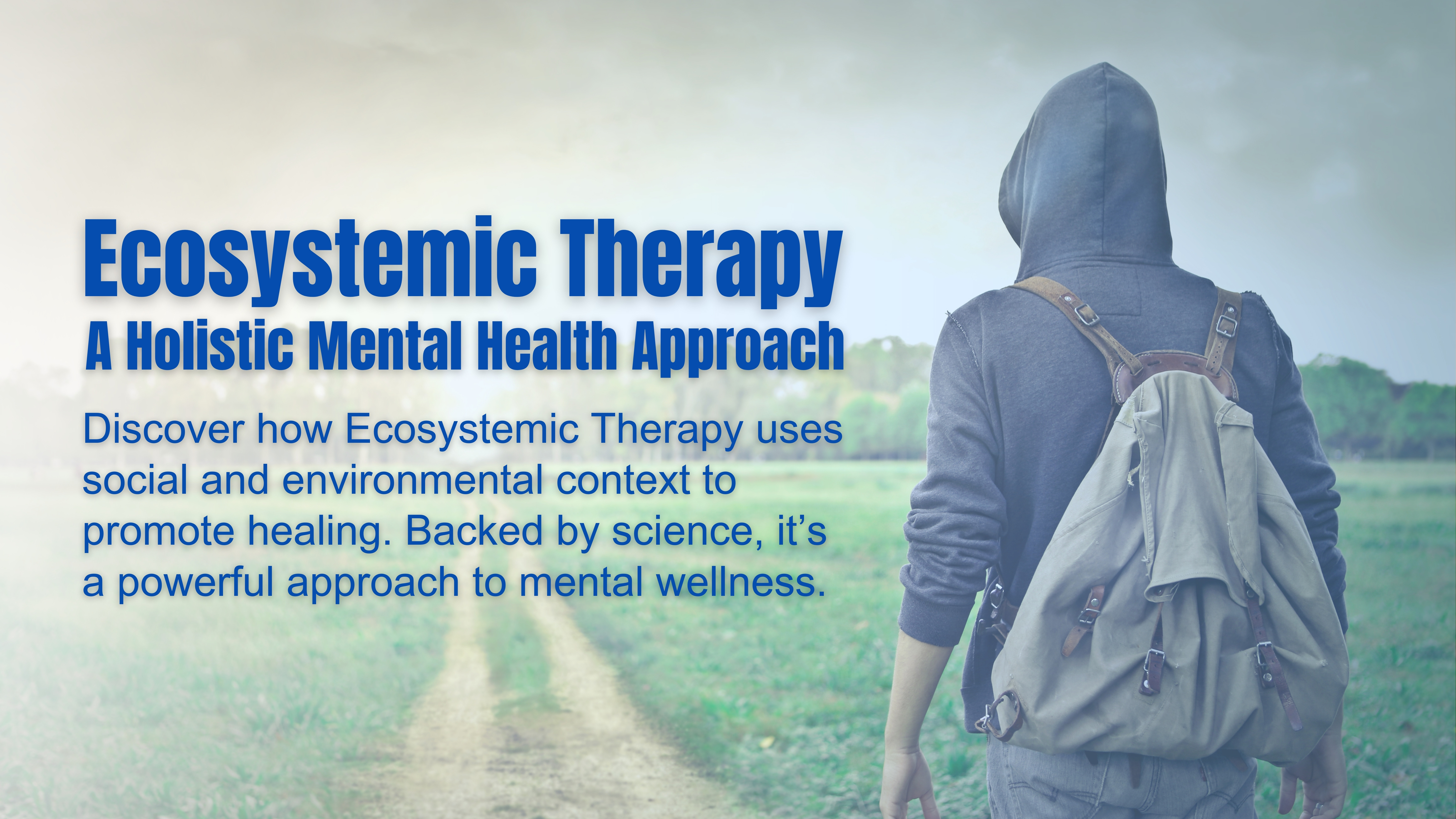Ecosystemic Therapy: A Holistic Mental Health Approach

Discover how Ecosystemic Therapy uses social and environmental context to promote healing. Backed by science, it’s a powerful approach to mental wellness.
What Is Ecosystemic Therapy?
Imagine trying to understand a fish’s behavior without ever looking at the water it swims in. Sounds impossible, right? The same idea applies when we consider human behavior. We are not isolated beings—we are shaped by our relationships, communities, and environment.
Ecosystemic Therapy is a powerful, emerging therapeutic approach that embraces this truth. It helps individuals heal by addressing their personal issues and the entire ecosystem they live in.
Rooted in systems theory and ecological psychology, Ecosystemic Therapy sees emotional, psychological, and relational challenges as deeply influenced by family dynamics, cultural factors, community structures, and even the natural environment.
Rather than asking, “What’s wrong with you?” an ecosystemic therapist asks, “What’s happening around you that could affect your well-being?”
Core Components of Ecosystemic Therapy:
- Systems Thinking: Recognizing that every individual is part of multiple, interconnected systems (family, work, community).
- Contextual Awareness: Considering socioeconomic, cultural, and environmental factors crucial to understanding mental health.
- Multi-Level Interventions: Therapy may involve family, schools, employers, or community groups, not just the individual.
This approach is especially effective for addressing complex challenges like trauma, relationship difficulties, behavioral issues in youth, and social disconnection.
Common Mental Health Problems Ecosystemic Therapy Addresses
Family Conflict and Miscommunication
Miscommunication, generational differences, and unresolved trauma can create serious dysfunction within families. Research shows that family-based interventions are more effective than individual therapy alone in addressing these issues.
Disconnection from Community
Loneliness and lack of social support are strong predictors of depression and anxiety. Studies have found that strong community ties significantly improve mental health outcomes.
Cultural and Social Pressures
Minority stress, systemic discrimination, and cultural dissonance heavily impact mental health. Incorporating a culturally sensitive lens into therapy dramatically improves engagement and outcomes.
Environmental and Ecological Stressors
Urbanization, noise pollution, and limited access to natural spaces have been linked to increased anxiety and stress. Exposure to natural environments has been scientifically shown to lower stress markers like cortisol.
Science-Backed Solutions from Ecosystemic Therapy
Family-Based Interventions and MST
Multisystemic Therapy (MST) is an evidence-based, family- and community-focused intervention that has successfully reduced juvenile delinquency, substance abuse, and mental health issues by treating multiple systems influencing the individual.
Enhancing Community Support
Programs that encourage community engagement—such as peer support groups, local volunteering, and neighborhood initiatives—build resilience and reduce symptoms of depression.
Integrating Cultural Competency in Therapy
Using culturally competent frameworks, like Sue’s Multidimensional Model, empowers therapists to better understand and work within clients’ cultural contexts, leading to stronger therapeutic alliances and better results.
Nature-Based Therapy and Ecotherapy
Therapies like forest bathing (shinrin-yoku), horticultural therapy, and other ecotherapy practices are gaining recognition for their measurable benefits on mental and physical health, including reduced blood pressure and anxiety.
Final Thoughts on Ecosystemic Therapy
Healing doesn’t happen in a vacuum. Ecosystemic Therapy reminds us that to understand and heal a person, we must understand and support their environment. By addressing the interconnected systems of family, community, culture, and environment, this approach offers sustainable, compassionate, and scientifically validated pathways to mental wellness.
As we continue to learn more about the complex interactions between individuals and their surroundings, Ecosystemic Therapy stands out as a transformative approach for the future of mental health care.